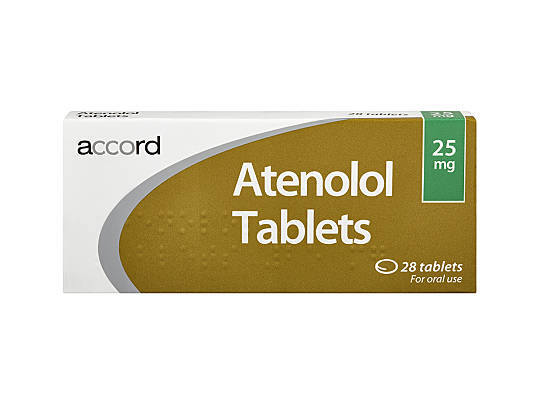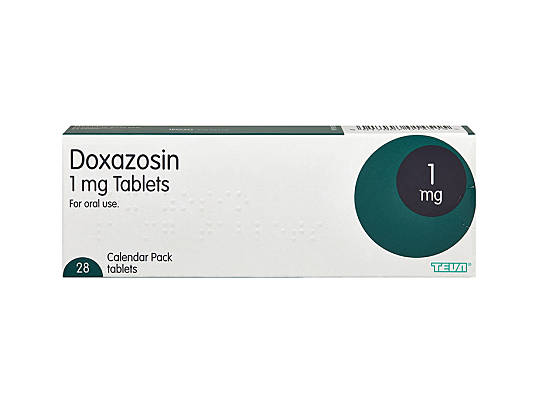High Blood Pressure Treatment
We offer doctor prescribed treatment for high blood pressure with free or next day delivery
Prices from £16.00
One of our doctors will review your order and prescribe a treatment if suitable. How to Order
With our fast and convenient service, you can get your prescribed treatment for high blood pressure and have an online consultation with our doctors.
Concerned about getting the right treatment? Read more information about high blood pressure treatment at the bottom of this page. Or, create an account to message one of our doctors for free.
Why choose us?
- Our service is quick and easy to use
- Our doctors will review your order and check it is suitable for you
- We offer a discreet delivery service straight to your door
- You can also collect your treatment from your local Asda pharmacy
Please note: when providing a generic (non-branded) medication we use a range of manufacturers. For this reason your medication may look different to the pictures shown here.
Blood pressure medications

In stock. Prices from £16.00

In stock. Prices from £16.00

In stock. Prices from £18.00

In stock. Prices from £17.00

In stock. Prices from £19.00

In stock. Prices from £19.00

In stock. Prices from £19.00

In stock. Prices from £18.00

In stock. Prices from £23.00

In stock. Prices from £18.00

In stock. Prices from £21.00

In stock. Prices from £27.00

No results found.
Please check your spelling or try another treatment name.




High Blood Pressure Treatment
Different types of high blood pressure treatment
There are 6 main types of high blood pressure treatments, which work in different ways to lower blood pressure.
ACE inhibitors
ACE inhibitors (angiotensin-converting enzyme inhibitors) lower blood pressure by relaxing and widening your blood vessels. Doctors usually offer ACE inhibitors for high blood pressure treatment to people who are under 55 years or have diabetes. Ramipril is an example of an ACE inhibitor.
Angiotensin-II receptor blockers (ARB)
ARB medicines work like ACE inhibitors to lower blood pressure, and are also preferred for people under 55 years. ARBs may be offered if ACE inhibitors are causing unbearable side effects. Some examples of ARBs are losartan or candesartan.
Calcium channels blockers
Calcium channel blockers stop calcium from passing into the muscle cells in your blood vessels, so they relax and become wider, which also reduces the pressure in your blood vessels. Doctors mainly offer calcium channel blockers first to people who are over 55 years old or from an African or Afro-caribbean ethnicity. Some examples of calcium channel blockers are nifedipine or amlodipine.
Beta blockers
Beta blockers can reduce blood pressure by causing the heart to beat with less force and slowing down your heart rate. They are no longer recommended initially to treat blood pressure, but can be used for other heart conditions like angina, atrial fibrillation or heart failure. Some common beta blockers are atenolol or bisoprolol.
Diuretics or ‘water’ tablets
Diuretics, also known as ‘water’ tablets, work by removing more salt and fluid from your body’s circulation through your urine. This reduces the pressure in your blood vessels and lowers blood pressure. Your doctor may also give you diuretics if your blood pressure is not properly controlled with a single high blood pressure tablet. Some common diuretics are indapamide or bendroflumethiazide.
Alpha blockers
Alpha blockers lower blood pressure by working on the muscle cells in the blood vessels to relax them, and improve blood and oxygen circulation throughout your body. Alpha blockers may be added to your high blood pressure treatment plan if your blood pressure is not properly controlled with other medicines. Doxazosin is one of the most common alpha blockers.
-
-
Blood pressure measures the pressure in your blood vessels (arteries) when blood flows around your body. If you have high blood pressure it may mean your blood vessels are narrower than normal, so your heart is working harder to pump blood around the rest of your body.
In the UK, about a third of people have high blood pressure but may not be aware of it. High blood pressure can cause some serious health problems like stroke or heart attacks.
Blood pressure is measured with 2 numbers:
- The higher number (systolic blood pressure) measures the blood pressure in your arteries during each heartbeat, when your heart pumps blood out.
- The lower number (diastolic blood pressure) measures the blood pressure in your arteries when your heart is resting between beats.
Blood pressure readings are measured in millimetres of mercury (mmHg). A normal blood pressure reading is usually between 90/60mmHg and 120/80mmHg.
High blood pressure is when the reading is over 140/90mmHg. A reading between 120/80mmHg and 140/90mmHg can mean that you are at risk of getting high blood pressure.
-
-
A lot of people with high blood pressure only find out when they have a routine check up, as it can often cause no symptoms at all. Sometimes, if it is very high, you may have symptoms like headaches, dizziness, or changes in your vision.
-
-
To make a diagnosis, your doctor will need to confirm you have numerous high blood pressure readings taken at different times, when you are relaxed. This can be done with help from your local GP surgery or at home using your own digital blood pressure monitor.
Certain things may increase your risk of having high blood pressure. You may be at risk if you:
- are 65 or older
- have a family history of high blood pressure
- do not exercise regularly
- smoke
- drink too much alcohol
- drink a lot of coffee
- eat foods with a lot of salt
- do not have enough fibre, fruit and vegetables in your diet
- are overweight
- do not sleep well
- are under stress regularly
- are of African or Caribbean heritage
Sometimes, high blood pressure may be caused by some conditions like:
- thyroid problems
- kidney problems
- hormone problems (adrenal gland tumours)
- diabetes
- lupus
- obstructive sleep apnoea
- heart problems from birth (congenital)
- taking medicines like the combined contraceptive pills or steroids
- taking illegal drugs like cocaine
-
-
No, high blood pressure tablets are prescription-only medicines so you need a doctor’s prescription to get them.
Treating high blood pressure depends on certain factors like your age, ethnicity, other medications you take, if you are pregnant, or if you have other medical conditions like diabetes.
If you are already using blood pressure treatments and your blood pressure is well controlled, you can get a prescription for your treatment from our doctors. Our doctors will make sure that the treatment is still right for you.
-
-
High blood pressure tablets can be very effective, but they each have some side effects you should watch out for. These side effects may resolve after some time but if they become unbearable, speak to your doctor.
ACE inhibitors
Common side effects of ACE inhibitors may include:
- A dry, irritating cough
- dizziness
- headaches
- feeling or being sick
- mild skin rash
Angiotensin-II receptor blockers (ARB)
ARB tablets may cause some side effects, including:
- dizziness
- headaches
- feeling or being sick
- joint and muscle pain
Calcium channels blockers
Calcium channel blockers may cause some side effects including:
- constipation
- headaches
- swollen ankles
- dizziness
- flushed skin
Beta blockers
Some side effects of taking beta blockers are:
- dizziness
- headaches
- feeling tired
- cold hands and feet
- constipation
- problems with getting an erection
Diuretics or ‘water’ tablets
Diuretics may cause the following side effects:
- dizziness
- increased thirst
- needing to pee more often than usual
- a condition known as gout
- problems with getting an erection
Alpha blockers
Some side effects of taking alpha blockers are:
- headaches
- dizziness or feeling drowsy
- dry mouth
- feeling sick
There are a few things you can do to manage the side effects of high blood pressure tablets.
You can:
- drink plenty of fluids to prevent dehydration
- avoid drinking alcohol
- avoid caffeine
- quit smoking
- eat more fibre, fruit, and vegetables
- raise your legs when sitting down
- sit or lie down if you feel dizzy
- avoid spicy food and try to take your tablets with food or after a meal
- speak to your doctor if the side effects are unbearable so they can recommend other high blood pressure tablets
-
-
It is important you tell your doctor about all medications you are taking before they prescribe high blood pressure tablets for you. You should tell your doctor if you have any medical conditions, so they can recommend the right treatment for you.
ACE inhibitors and ARB tablets are not prescribed for pregnant women or breastfeeding mothers. You should tell your doctor if you think you may be pregnant or are planning to be pregnant.
Avoid drinking grapefruit juice or eating grapefruit when taking calcium channel blockers as it may increase your risk of having side effects.
You should not take beta blockers if you have asthma or COPD.
If you notice signs of an allergic reaction after taking any of the high blood pressure tablets, stop taking them and go to your nearest A&E department.
Signs of an allergic reaction may include:
- skin rash that is itchy, red, blistered, or swollen
- wheezing
- tightness in your chest
- swollen tongue, face, or throat
- difficulty breathing
-
-
There is no current evidence against taking Vitamin D while also taking high blood pressure treatment tablets. If you are concerned about taking any other medicines, including over the counter ones, while you are on high blood pressure medications, speak to your doctor for advice.
-
-
Treating high blood pressure should usually begin with making healthy lifestyle changes. You may even be able to lower your blood pressure this way without the need to also take medication.
To help lower high blood pressure you can:
- reduce your alcohol intake
- stop smoking
- increase regular exercise
- eat a healthy diet including plenty of fruit, fibre, and vegetables
- lose unhealthy weight
- drink less caffeine

Dr Kathryn Basford is a qualified GP who works as a GP in London, as well as with ZAVA. She graduated from the University of Manchester and completed her GP training through Whipps Cross Hospital in London.
Meet our doctorsArticle created: 01 Sept 2021
Last reviewed: 01 Sept 2021
-
High blood pressure (May 2020) Patient Info (Accessed 16 August 2021)
-
High blood pressure (hypertension) (October 2019) NHS (Accessed 16 August 2021)
-
High blood pressure treatment (October 2019) NHS (Accessed 16 August 2021)
-
Blood pressure test (July 2018) NHS (Accessed 16 August 2021)
-
Medicines for high blood pressure (May 2020) Patient Info (Accessed 16 August 2021)
Order blood pressure treatment


GMC: 7074021

GMC: 6149061

GMC: 7085115










